Un comentarista se dirige al Concejo Municipal de Eureka el martes | Fotos: Andrew Goff
Al final de la reunión de anoche de cinco horas, el Concejo Municipal de Eureka aprobó por unanimidad una resolución de “ciudad santuario” para proteger a los inmigrantes indocumentados que viven en la ciudad.
La resolución — linked here — prohíbe a la ciudad utilizar sus recursos para la aplicación de la ley de inmigración y prohíbe al Departamento de Policía de Eureka compartir información relacionada con la inmigración con la Oficina de Inmigración y Aduanas de los Estados Unidos (ICE) “a menos que lo requiera la ley federal o estatal”. La resolución no impide la aplicación de la ley contra personas condenadas por delitos graves y violentos.
Docenas de residentes llenaron las Cámaras del Concejo Municipal de Eureka.
Gerente de la ciudad Miles Slattery y Abogada de la ciudad Autumn Luna.
Al hablar en la reunión de anoche, la Abogada de la ciudad Autumn Luna dijo que la resolución se adhiere a la ley estatal y “comparte muchas similitudes” con las políticas de santuario adoptadas por el Condado de Humboldt y la Ciudad de Arcata. También reconoció la represión a nivel nacional en la aplicación de la ley de inmigración federal y los recientes esfuerzos de la administración Trump para desfinanciar a las comunidades que se niegan a cumplir con los funcionarios federales de inmigración.
“[T]hese issues are being litigated currently, and there has been no judgment from any court that would prevent the city from taking the action today. I just want to be clear about that,” Luna said, adding that she and her staff will continue to monitor the situation. “[N]othing about this policy prevents enforcement against folks who have committed crimes. This is about civil federal immigration policy and the city’s directive that we not use city resources to assist in civil federal immigration policy enforcement. I think that’s a really important distinction.”
Turning to questions from the council, Councilmember Kati Moulton asked EPD Chief Brian Stephens if he thought the resolution would make Eureka less safe.
“I don’t believe the resolution will change the way the community members will feel — definitely not feel unsafe,” Stephens said. “It’s our mission to continue to serve the community no matter whether the resolution is in place or not. … Nothing has changed [in] the way the Eureka Police Department serves our community. We’re open to anyone that’s victimized to come forward, and we’ll take care of them and do all we can to solve their crime.”
Stephens also shared a brief statement emphasizing his department’s “ongoing mission” to foster trust between residents and law enforcement and ensure “that everyone feels safe to seek help with crimes, regardless of immigration status, background or circumstance.”
More than three dozen people spoke during the hour-long public comment portion of the meeting. Eureka resident Carmen Elena, who immigrated to the United States from Mexico, called on the city council to “push back against the systems that seek to divide and dehumanize us.”
“Let’s be honest about why so many immigrants are here in the first place,” Elena said. “Many have fled violence, economic destabilization, political upheaval [and] conditions created or worsened by U.S. foreign policies. From military interventions to trade agreements that have gutted local economies, our government has played a direct role in forcing people to leave their countries of origin. And yet, when they arrive here seeking safety, they are often met with detention, deportation, hostility, or are merely welcomed as a surplus disposable labor force.”
Members of Centro del Pueblo hold a banner displaying the organization’s rapid response number as Perez addresses the council.
Brenda Perez, directora ejecutiva de Centro del Pueblo, elogió al consejo de la ciudad por considerar la resolución, señalando que el movimiento de ciudades santuario es una manera de “reparar errores históricos”.
“Mi esperanza con esta resolución … es que la policía local deje de hacer perfiles raciales,” dijo Pérez. “Es hora de que seamos iguales ante la ley. Es hora de que las ciudades, para todas las instituciones nos traten como iguales. … Diré que por primera vez desde que migré aquí, siento que ‘Nosotros, el pueblo’ es real. Todos nosotros - inmigrantes, ciudadanos, documentados e indocumentados - todos somos iguales ante un estatus santuario.”
Varios otros oradores compararon las políticas de inmigración de EE. UU. con la Alemania nazi. Peter Pennekamp, residente de Eureka, dijo que su padre llegó a EE. UU. como refugiado político después de que “toda su familia muriera en Auschwitz.” Agregó que las políticas actuales hacen extremadamente difícil que las personas emigren a Estados Unidos.
“No se lo ponemos fácil a la gente para venir aquí. Todos tienen que luch…
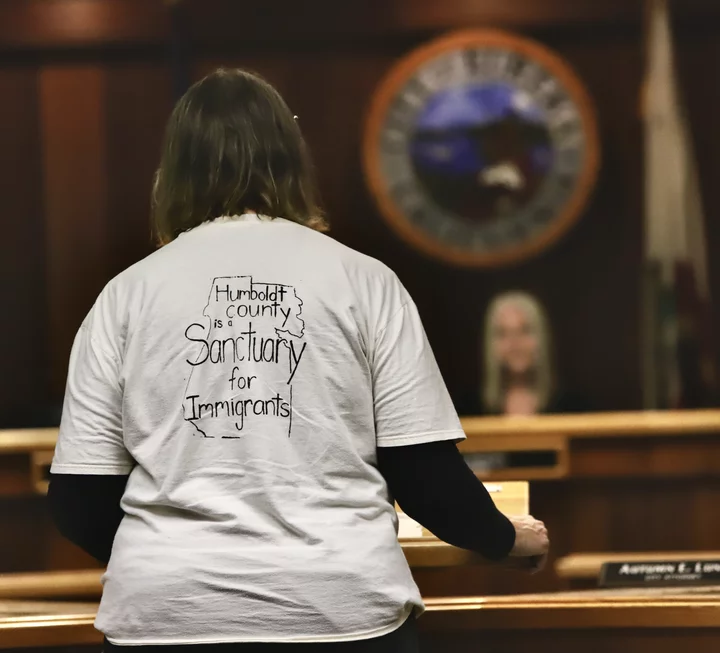
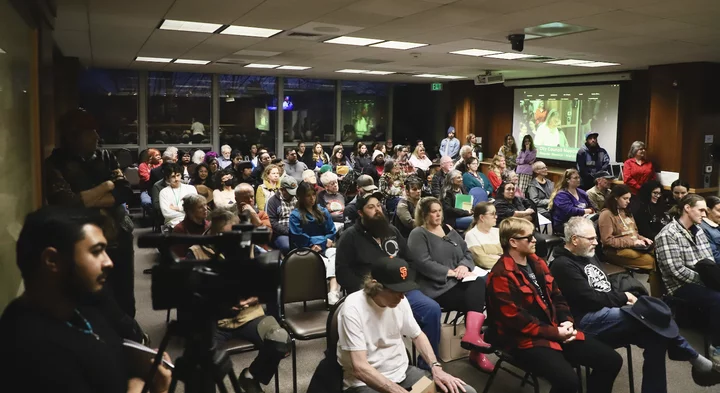
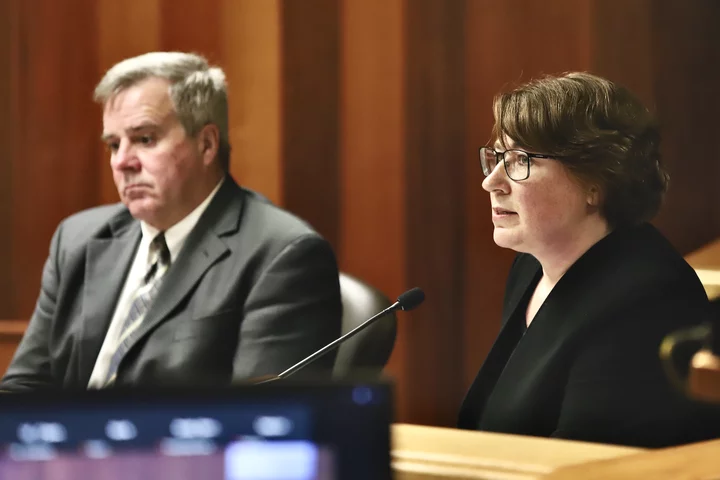
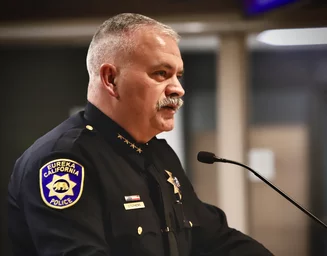
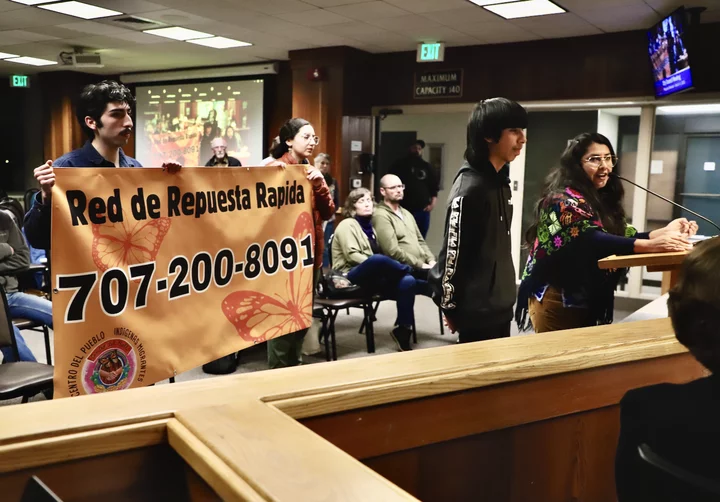
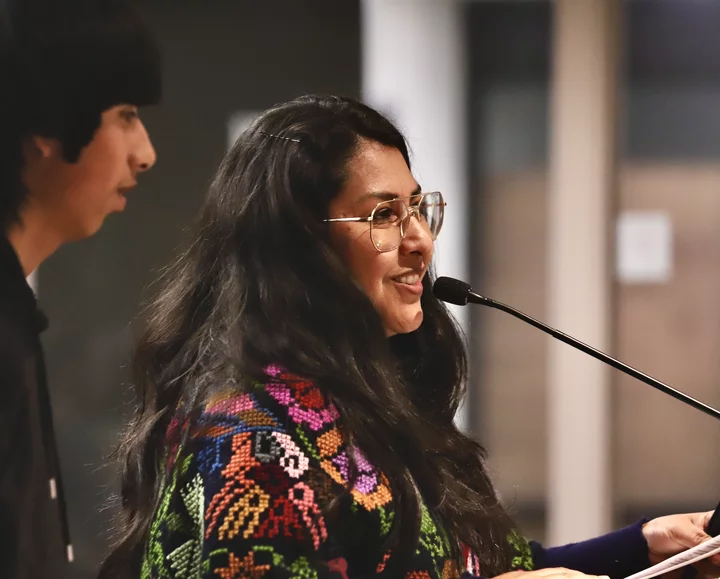

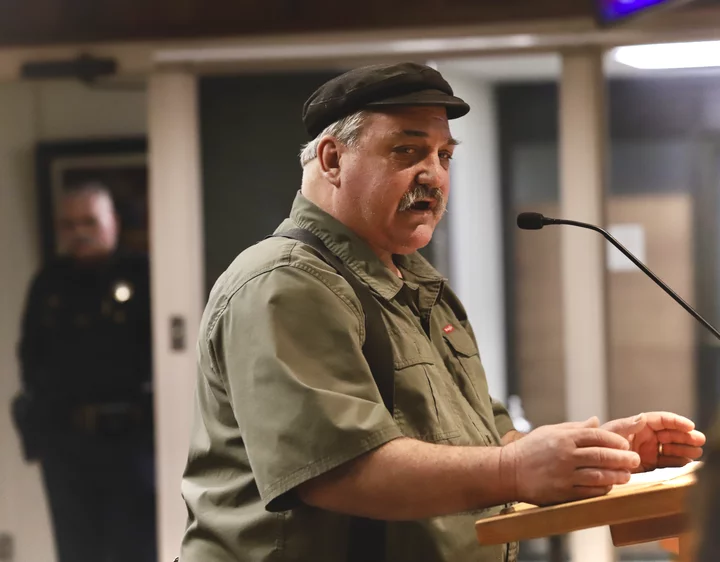
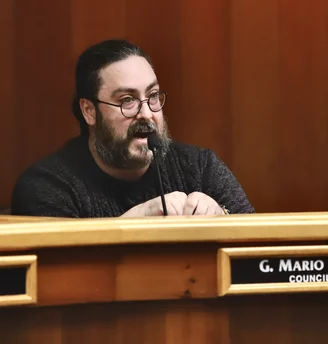
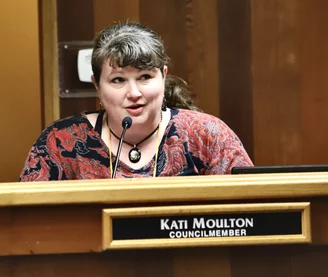
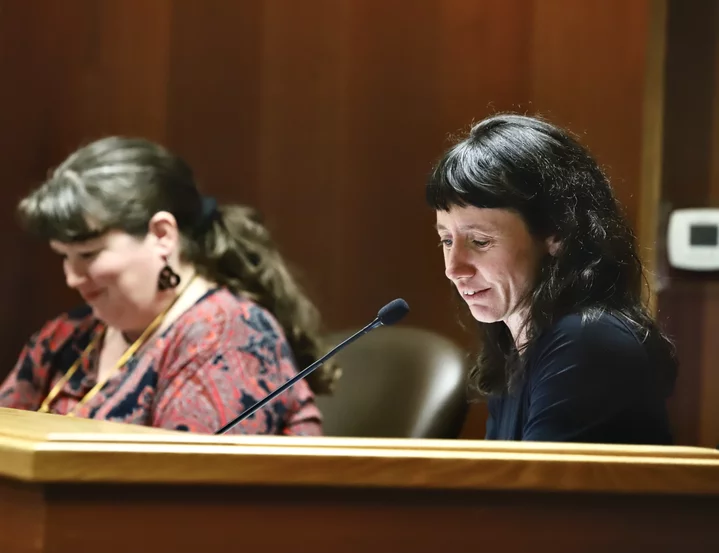

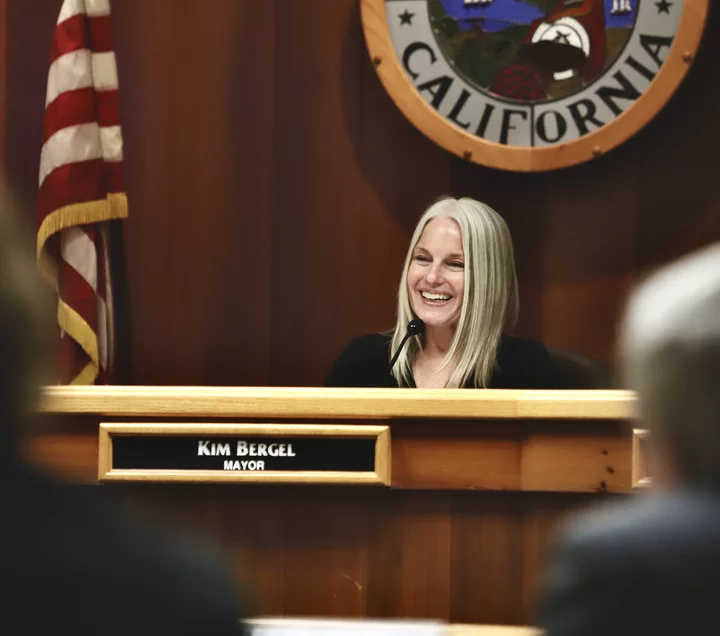
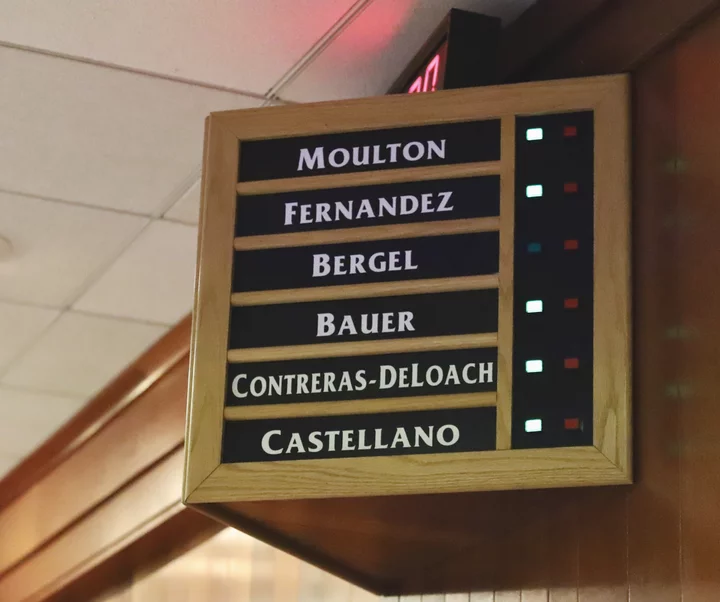
CLICK TO MANAGE